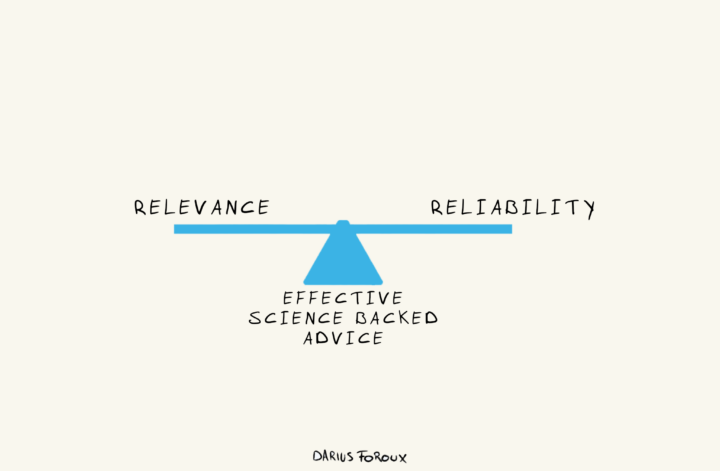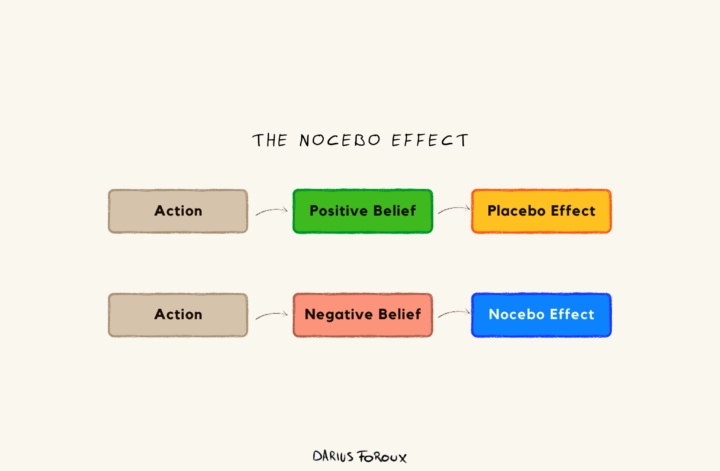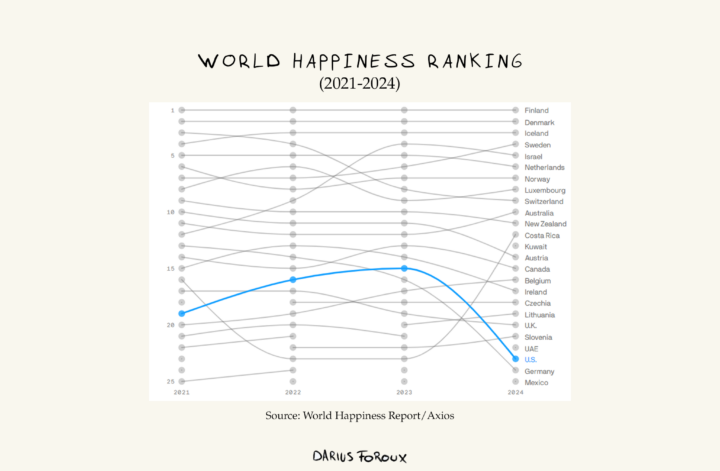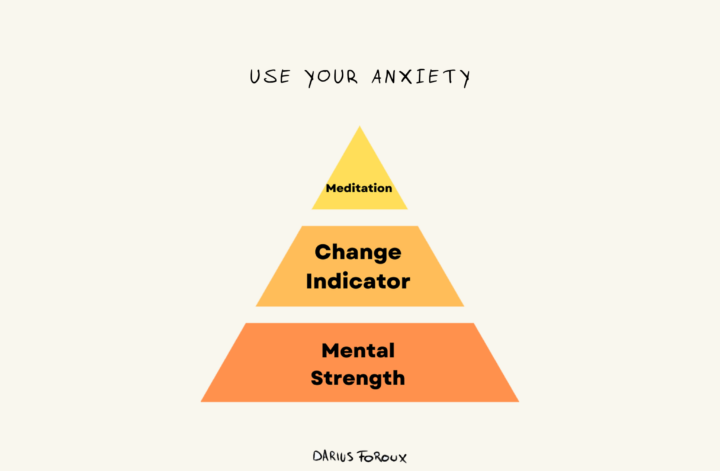If you google things like, “Is the Keto diet the best diet to be healthy?” You’ll likely find contrasting results. Some articles will tell you it’s good for you. Others will say the opposite. That’s the problem with science-backed advice: They can provide conflicting solutions.
How do you know whether or not to listen to a certain science-backed advice?
Firstly, it’s important to understand that science is constantly evolving. What may be considered a fact today may be proven wrong tomorrow. This doesn’t mean that all scientific research should be disregarded, but rather that we should approach advice with caution and continue to evaluate new evidence as it becomes available.
Secondly, not all scientific studies are created equal.
While some research may have been conducted with high-quality methods and a large sample size, others may have flaws or limitations. This is why it’s important to look at the source of the information and consider who funded the study. If there is a potential conflict of interest or bias, then it’s best to be cautious.
Here are two examples of when you are best off NOT listening to certain Science-backed advice.
1. It sounds too absurd to be true
Researchers from the University of Pennsylvania found that listening to The Beatles’ song “When I’m 64” makes people younger by almost seventeen months.1Source: SageJournals
The study didn’t say listening to the song made one feel younger or the brain younger. Instead, it made the bold claim that listening to the song enough did actual changes to your body and made you literally younger.
The study met the standard of “statistical significance” that most scientific journals demanded. And so it was published.
Later, the study’s authors revealed that they just made up the study and its results. They were experimenting on whether or not they could “get away” with publishing a study (in a moderately prestigious scientific journal) by using statistical tricks to find relevant-looking patterns out of random results.
In scientific research, this is called a “False Positive.”
That Beatles study proved just how unreliable certain “findings” can be, even when published in an actual scientific journal.
Here’s a good test to see if science-backed advice is worth listening to: Look for studies that have replicated it and come up with similar results.
That’s pretty much the best way to validate a study’s trustworthiness. If other researchers did the same study and the results were the same, then chances are that the absurd study may be true, and you need to start looking at the world differently.
But if there are only one or two such studies, it’s likely better to proceed to check on the second level of screening below.
2. It didn’t have enough time to age
How long ago was this study done? And how many studies have been done about this topic over the years?
As a rule of thumb, there’s a sweet spot for research timelines. Anything over 20 years old? Probably outdated. Did the study just come out this year, and have no other studies replicated it to see for consistent results? Then it’s probably too new and needs more verification.
It’s all about striking that balance between relevance and reliability.
Here’s an even better way of testing the plausibility of a study’s results: Try asking your wizened grandparents about the findings.
“Hey, Grandpa, this study says that X leads to N. What do you think of that?”
Sometimes, good old common sense is a great compass for discerning which to believe.
Again, if it seems too absurd to be true, it probably is.
Always cross-check
One of the most popular and controversial behavioral studies is the Stanford Prison Experiment.
The study was conducted in 1971. It involved college students who were randomly assigned roles of prisoners and guards in a simulated prison environment. The experiment concluded that when people are placed in certain situations, like becoming prison guards, they tend to abuse their power and treat others (i.e., the “prisoners”) inhumanely.
Over time, SPE was eventually debunked. And its results have been concluded as misleading.2Source: APA PsycNet
It’s always important to critically evaluate any study or research before accepting its conclusions. Just because something is published in a science journal doesn’t necessarily make it true.
Always cross-check information and consider multiple sources before making up your mind based on research findings.




